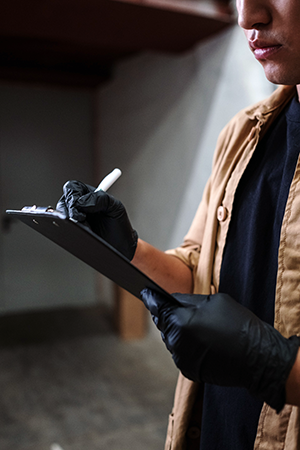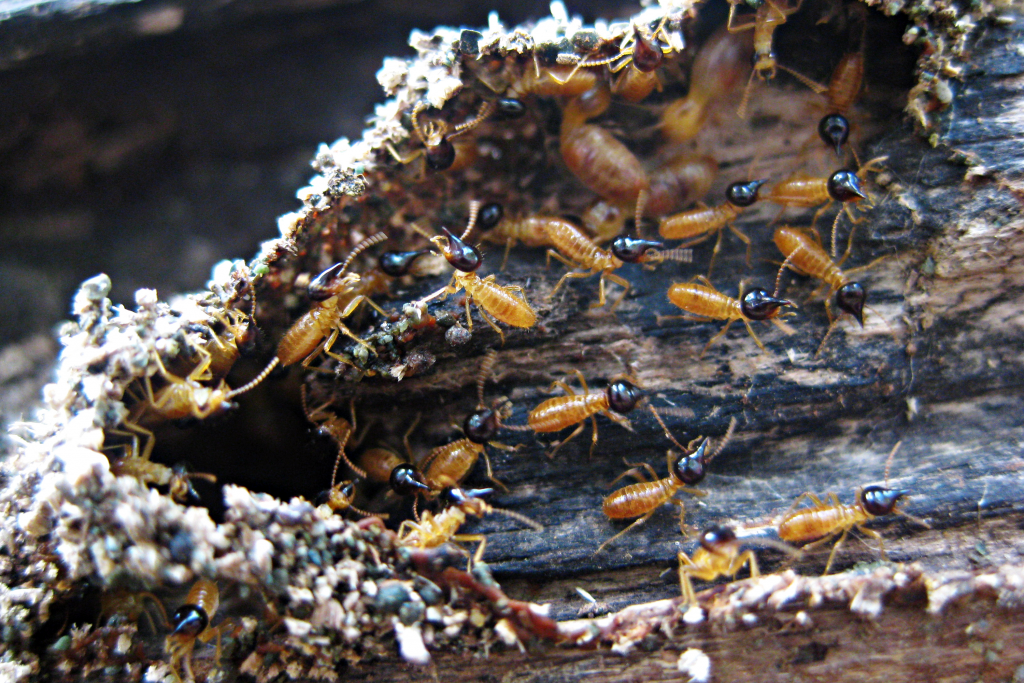Your home is your humble abode. Therefore, it is important that you protect the place that you reside in from all dangers. What are the many issues that can arise and make your life uncomfortable within your home?
While there is a list of problems that you may encounter, the termite problem can become a nuisance.
Termite damage can incur thousands of dollars by deteriorating the foundation and overall structure of your house. In this article, we will cover everything you should know about a termite inspection in DFW in detail.
How to Check for Termites in Your Home?
Termites are insects that have different species. The ones that reside in the houses include drywood termites and subterranean termites.
While you wait to hire a professional termite control company, here are the main signs of termite you should look for.
How to Check for Termites?
- Damaged Wood: if you come in contact with any hollow sounding wood in your house, contact a professional termite infestation company
- Mud tubes: mud tubes are similar to small termite-sized highways that move from a wood source to the soil
- Excrement: you can check for “frass” (termite excrement) which are the same size as coffee grounds
- Bubbling Paint: peeling paint can be a sign of several problems, so hiring a professional termite inspector can help diagnose the problem perfectly
- Discarded Wings: Lastly, search for any insect wings which would suggest that the termites are building a new colony inside your home
What to Expect from a Termite Inspection?
The real question regarding termite infestation should begin with “what is a termite inspection?”
By learning its essential aspects, you will realize the potential benefits and preventative measures that you should take.
A termite inspection will involve checking each and every corner of your house, including exterior and interior.
A professional termite inspector’s team will help you inspect the foundation and every corner of your home that comes in contact with the soil in the ground.
The goal of a professional termite inspection is to check for any signs of termite infestation and provide recommendations based on possible solutions.
What Does a Termite Inspection Procedure Consist Of?
You may be wondering how a termite inspection is done. It is a thorough inspection of your home’s interior and exterior. A comprehensive check ensures that all angles, corners, walls, ceilings, and other house components are free of infestation.
By paying attention to what a termite inspection consists of, you can prepare your house better.
House foundation, previous infestations, signs of infestation, and the entire exterior of your home will also be included in termite inspection. Landscaping areas and trees in your backyard will be no exception.
In case of termite infestation, report graphs will show the wood destruction and evidence sources of infestation in your home.
Do Termite Inspectors Come Inside?
During the inspection, a professional termite inspector checks garage, attic, walls, windows, door frames, baseboards, crawl space, closets, and all the cabinets.
Utility rooms receive greater attention as they hide the most general entryways for termites.
The termite inspector will produce a comprehensible termite inspection report for you, which will contain:
- What kind of insects are present in the house and under what conditions
- Sources of pest entry points (termites)
- Observations and inspection findings that link the destruction of wood to the presence of an infestation
- Detailed recommendations on how to prevent and correct the termite infestation while reducing chances for the future
How Long Does a Termite Inspection Take?
 If you wish to assess how long it will take to complete your house’s termite inspection, pay attention to the experience, skills, and knowledge of the professionals you hire.
If you wish to assess how long it will take to complete your house’s termite inspection, pay attention to the experience, skills, and knowledge of the professionals you hire.
A typical termite inspection in Dallas can take nearly 2 to 3 hours when talking about a complex house structure.
For small apartments, it will be no more than a 45-minutes or an hour’s process.
Further, if the termite inspectors are too quick, you should raise a few questions, especially how they came to conclude a report on infestation so quickly. It requires detailed checking and may even take the better part of your day if the house is too big.
What Happens if Termites Are Found During Inspection?
Once the termite inspector in your house finds enough evidence of an active infestation, they will use the right tools and procedures to limit termites’ spread.
Apart from that, the professionals’ report will suggest methods or solutions that you can acquire to get rid of the termites in your house.
How long is a Termite Inspection good for?
A termite inspection report is valuable. However, under the USDA program and FHA guidelines, it is valid for no longer than 180 days.
During this time, you will not face any problems. On the other hand, a termite infestation may likely reoccur if you don’t take adequate preventative measures.
How Is a Termite Inspection Done?
A termite inspector uses tools and resources to expose the potential entry and exit points of termites in the house. These can be the corners that lead to a buildup of a termite colony in general.
What’s more, the termite inspector will check the unprotected wood in your house to assess its condition. Prominently, this is where the inspection will reveal valuable signs of an infestation.
How Often Should You Get a Termite Inspection?
For the best results and house protection (exterior and interior), it is optimal that you go for a termite inspection once a year. Regular inspections won’t hurt as long as you do thorough checking.
Nonetheless, you may require additional checks after pest control procedures. If you renovate or even move to a new home, termite and other pest inspections should be at the top of your mind to ensure a peaceful and comfortable life.
What Happens During a Termite Inspection?
The inspector may check all the possible locations of the house and detect any potential signs of the infestation.
Following that, they may keep a check on the following signs:
- Termite exit holes
- Termite excrements
- Mud tubes
- Discarded wings
- Wood damage
Any wood and ground contact can give rise to the debilitating infestation. Therefore, it will remain one of the main focus points of a home inspector.
Do Home Inspectors Check for Termites?
A termite inspection can help identify the exact sources of the infestation and pest colonies around your house. As wood is a top food source for termites, it can cause structural problems for the entire house.
It is worth mentioning that termites can spread too quickly from one part of the house to the other. Therefore, home inspectors value termite inspection heavily.
How to Prepare for Termite Inspection?
Preparing for a termite inspection can make the process a whole lot easier for the professionals as well as for you.
If you are selling your house, it will help to know the main and possible infestation in your house for immediate preventative measures. Moreover, living a comfortable life involves getting rid of termite infestations. Here are the things that you can pay attention to:
Rearranging the essential areas of the termite infestation can help. Water sources, including kitchen and bathroom areas, should be of focus. Besides, your garage is also susceptible to termite infestation.
You should move any unwanted or unnecessary items from the walls and other corner parts of your house. These sources (especially areas with water damage) and areas can be the entry points for termites. Hence, keeping them clear will help with the inspection.
Ensure that you clear your attic for access. Any falling debris or clutter would hinder professional inspection procedures. The foundation and attics of the house are often the first things to suffer from termite infestation.
You should clear any unnecessary bushes or landscape components hindering vision or checking visuals of the exterior.
Does FHA Require Termite Inspection?
FHA has a rather simple process to understand. A property has to meet the standards of the FHA guidelines and procedures to qualify for an FHA loan.
Therefore, home inspectors pay close attention to the potential termite infestation in the houses.
Is Termite Inspection Required?
The guidelines of FHA require a termite inspection in the case of an evident active termite infestation problem.
The property will most probably remain safe from termite infestation if inspected once a year for termites.
Bottom Line
You should hire a professional pest control company to inspect if you believe that your house has termite infestations. Furthermore, paying close attention to the signs and causes of termites in the house will save you from costs of repair and restructuring.
Termites feed on wood and other organic matter. Therefore, having a termite infestation in your house could mean weakening the foundation, walls, ceiling, and many other parts. In short, termites infestation can damage your home and incur expensive control procedure costs.



